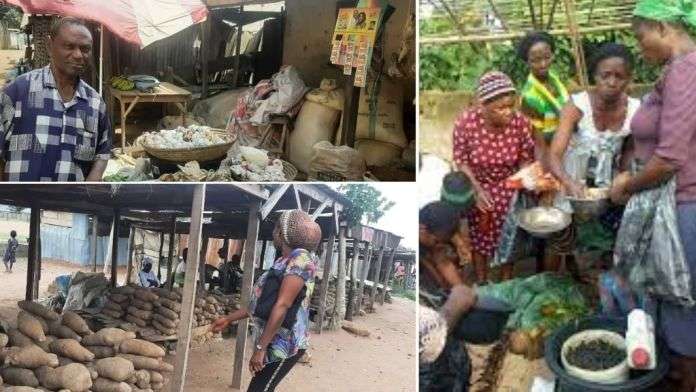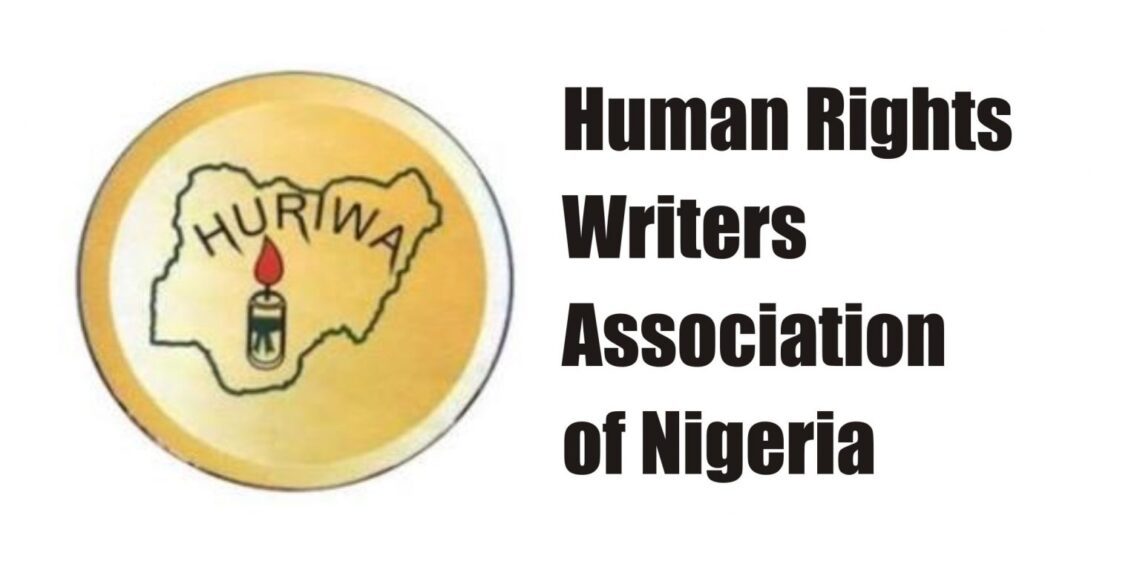The cashless policy introduced by the Central Bank of Nigeria (CBN) has triggered a squeeze in cash in circulation, leaving traders and buyers stranded, with many of them now resorting to the traditional sales method of trade by barter.
The method involved directly exchanging goods between traders and farmers without cash payment. It has become the last resort for them as the lingering cash shortage appears to have taken a firm root, with the Central Bank insisting that the old notes of N500, and N1000 are no longer legal instruments in the country.
According to Arewa Voice findings, the mode of trade has gained prominence in recent weeks as a result of the severe scarcity of Naira notes, which has left many families cash-strapped and unable to make purchases. Petty traders and farmers are gradually becoming conscious of the fact that without bartering their goods, life might become even more unbearable.
Speaking on why some traders have resorted to bartering their goods, a trader at the popular Makurdi Railway Market who deals in foodstuff, Mr. Felix Uwakwe, said it is the way out of the present cash scarcity that is crippling business activities.
Uwakwe said: “Bartering is the way out of the present situation we have found ourselves in. We are engaging in some form of barter trade. I call it some form of trade by barter because when traders, especially people from the rural areas, come to sell their goods in town and are not able to collect the exact money of their traded goods due to the lack of the new redesigned Naira notes, they rather want to go into bartering the value of their goods with what the traders to whom they sold their goods have to give them in return. So to some extent, the situation on the ground has warranted the issue of bartering their goods for another person’s goods due to the non-availability of the new Naira notes and the old notes.”
Asked if resorting to the ancient mode of trade was proper at this time, Mr. Uwakwe, who disclosed that he is a doctorate student at the University of Nigeria, Nsukka, said the current cash situation in Nigeria warrants trade by barter so that businesses do not collapse.
“If all things were normal, no one would want to go into such a practice. But because traders do not have an option, they go into it. It is also not convenient for us because it is not necessary that we need the goods they are exchanging for our own. Generally, it does not in any way help businesses. And I wish that the situation will normalise because the lack of Naira notes is seriously retarding economic activities in the country.
“Government owes the people the responsibility of making enough cash available so that unscrupulous people do not exploit the current situation to inflict more harm and pain on the people. If they want to clean up excess money in the economy, they should do it the right way and stop putting innocent people through unnecessary hardship.
We advise that banks should be issuing the new notes and continue mopping up the old ones as they circulate at the same time. Government should also be forthcoming with information; the lack of information is creating crisis. Some people collect old notes, while others do not. And strangely, the government has not come out with a specific announcement directing people to still make use of the old notes. There is speculation everywhere, and I must tell you that no economy develops on the basis of speculation.”
On her part, Madam Grace Ordah, who trades in dried fish, said she started bartering her fish about three weeks ago after it became obvious that it would not be easy to buy items like yam, soya bean, rice, and several household items due to a lack of cash.
She said: “For about three weeks now, it has become difficult to sell because I don’t have a bank account; what I do is convince fellow traders who sell some of the things I need at home to give me the said things while I give them the price equivalent of my fish.
“It is not the best because sometimes you give more than you should, since you desperately need the food stuff, and if you do not do it, you and your family will go hungry.
“So that is what is helping some of us at the moment. Our business is almost dead; we cannot get cash; so the only way out is to barter our foods to survive with our families. Government should know that we are not happy with what they are doing to us. If they introduce a policy and the masses who voted them in demand that they rescind it, we expect that they heed our cry. But in this instance, they seem to enjoy seeing us suffer
















